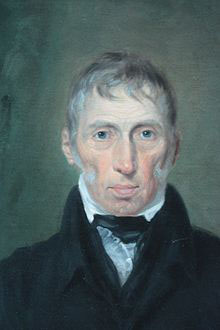

John Loudon McAdam was a Scottish engineer who lived from 1756 to 1836. He is best known for developing the macadamized road, which is a type of road made from crushed stones. McAdam's roads were much smoother and more durable than the dirt roads that were common at the time.
McAdam was born in Ayrshire, Scotland, and he studied engineering at the University of Edinburgh. After graduating, he worked as a surveyor and a civil engineer. In 1815, McAdam was appointed the surveyor general of roads in Scotland.
McAdam believed that the best way to build a durable road was to use crushed stones. He found that crushed stones packed together tightly and formed a smooth surface that was resistant to wear and tear. McAdam's roads were much smoother and more durable than the dirt roads that were common at the time.
McAdam's macadamized roads were a major improvement over the dirt roads that were common at the time. They were smoother, more durable, and less expensive to maintain. McAdam's roads helped to improve transportation and commerce in Scotland and around the world.
McAdam's macadamized roads are still used today in many parts of the world. They are a testament to McAdam's engineering skills and his dedication to improving the quality of roads.
John Loudon McAdam showed an early interest in engineering, and he studied at the University of Edinburgh.

Here are some different forms of the word "John Loudon McAdam":
John Loudon McAdam: This is the full name of the person.
J. L. McAdam: This is a common abbreviation of the full name.
John McAdam: This is a shortened form of the full name.
Loudon McAdam: This is a shortened form of the middle name.
The name "John Loudon McAdam" is of Scottish origin.
John is a masculine given name that is derived from the Hebrew name "Yochanan", which means "God is gracious".
Loudon is a Scottish surname that originated as a habitational name from any of the places called Loudon, from the Old English personal name Lōdún.
McAdam is a Scottish surname that originated as a patronymic from the Gaelic personal name Mac Adhamhain, meaning "son of Adam".
What is John Loudon McAdam famous for?
Question:
Who is John Loudon McAdam and what significant role did he play in the field of transportation and engineering? Explain his contributions to road construction and their impact on modern infrastructure.
Answer:
John Loudon McAdam was a Scottish engineer and innovator known for his pioneering work in road construction. In the early 19th century, he revolutionized the way roads were built, leaving a lasting impact on transportation and infrastructure development.
McAdam's method, known as "macadamization" or "macadam road construction," involved layering crushed stone in carefully graded sizes to create a solid and durable road surface. This approach improved road stability, drainage, and load-bearing capacity, leading to smoother and more reliable travel for horses and vehicles.
His technique was not only effective but also cost-efficient, as it required less maintenance compared to traditional road surfaces. McAdam's innovations greatly improved transportation networks, facilitating trade, travel, and communication during the Industrial Revolution.
McAdam's contributions laid the foundation for modern road construction principles, influencing the development of paved roads and highways worldwide. His approach to road building emphasised practicality, sustainability, and efficiency, qualities that are still central to civil engineering and infrastructure projects today.
John Loudon McAdam's legacy continues to shape our daily lives by providing the framework for safe and efficient transportation systems. His innovative road construction methods have played a pivotal role in connecting communities, driving economic growth, and shaping the modern world's infrastructure.